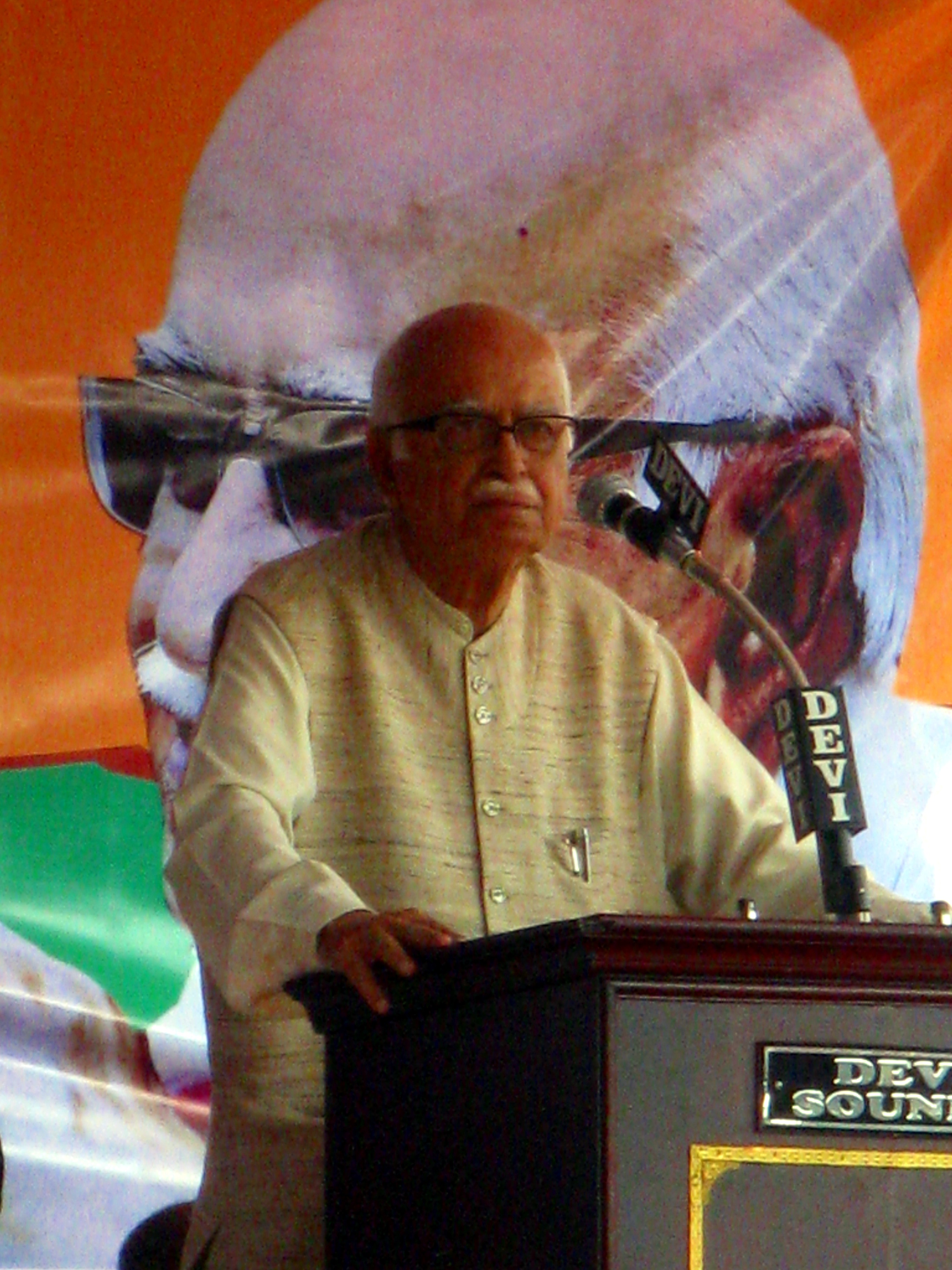nawiązanie do serii aresztowań polityków koalicji rządowej.
Źródło: Indie: Lider BJP krytykuje koalicję rządzącą, polska-azja.pl, 14 października 2011 http://www.polska-azja.pl/2011/10/14/indie-lider-bjp-krytykuje-koalicje-rzadzaca/
Lal Krishna Advani słynne cytaty
Źródło: Ewa Góralczyk, Indie: Korupcja największym problemem kraju, polska-azja.pl, 3 sierpnia 2013 http://www.polska-azja.pl/2013/08/03/indie-korupcja-najwiekszym-problemem-kraju/
Źródło: Andrzej Małkiewicz, Oś Brazylia-Rosja-Indie-Chiny?, geopolityka.org, 28 czerwca 2012 http://geopolityka.org/analizy/1539-os-brazylia-rosja-indie-chiny
Lal Krishna Advani: Cytaty po angielsku
L.K. Advani, My Country My Life (2008). ISBN 978-81-291-1363-4, quoting Koenraad Elst, The Saffron Swastika (2001)
“India should not betray its essentially Hindu personality.”
Quoted from Elst, Koenraad (2001). Decolonizing the Hindu mind: Ideological development of Hindu revivalism. New Delhi: Rupa. p.171
“Bullets for the kar sevaks, biryani for the Kashmiri militants.”
Advani commenting on the contrast of the Government's treatment of the Hindu agitation by Hindu kar sevaks and of armed Kashmiri militants who were provided with biryani during the siege of the Char-e-Sharif mosque. Quoted in Elst, Koenraad (2001). Decolonizing the Hindu mind: Ideological development of Hindu revivalism. New Delhi: Rupa. p58
“You were merely asked to bend, but you chose to crawl.”
L.K. Advani about press censorship during the Emergency. Quoted in NYT, https://www.nytimes.com/2014/07/28/opinion/Indias-Press-Under-Siege.html . Full quote: When Indira Gandhi, India’s prime minister, declared a state of emergency on June 25, 1975, she immediately imposed strict censorship of the press. With defiant exceptions, much of the press caved in quickly to the new rules, prompting L.K. Advani, one of the founders of the Bharatiya Janata Party, who was jailed during the emergency, to comment later: “You were merely asked to bend, but you chose to crawl.”
